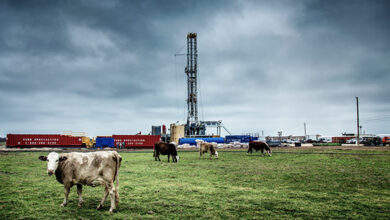Petronas to enter shale gas market in Canada
Petronas has formed a strategic partnership with Canada-based Progress Energy Resources Corp to develop the Altares, Lily and Kahta shale gas assets in northeastern British Columbia. The proposed acquisition will mark Petronas’ entry into Canada and will allow for accelerated upstream growth that could potentially advance an LNG export value proposition in that country.
Petronas views the acquisition as an opportunity to pave its entry into the North American shale gas industry while strengthening its position as a global LNG player.
Under the agreement signed on 2 June, Petronas’ international subsidiary will acquire 50% of Progress’ interest in the three areas for a total consideration of CDN$1.07 billion (RM3.32 billion). The assets included in the transaction cover approximately 150,000 gross working-interest acres of land with an estimated contingent gas resource of more than 15 trillion cubic ft. The assets will be operated by Progress.
The transaction is conditional upon relevant regulatory approvals and expected to close in Q3 2011.




